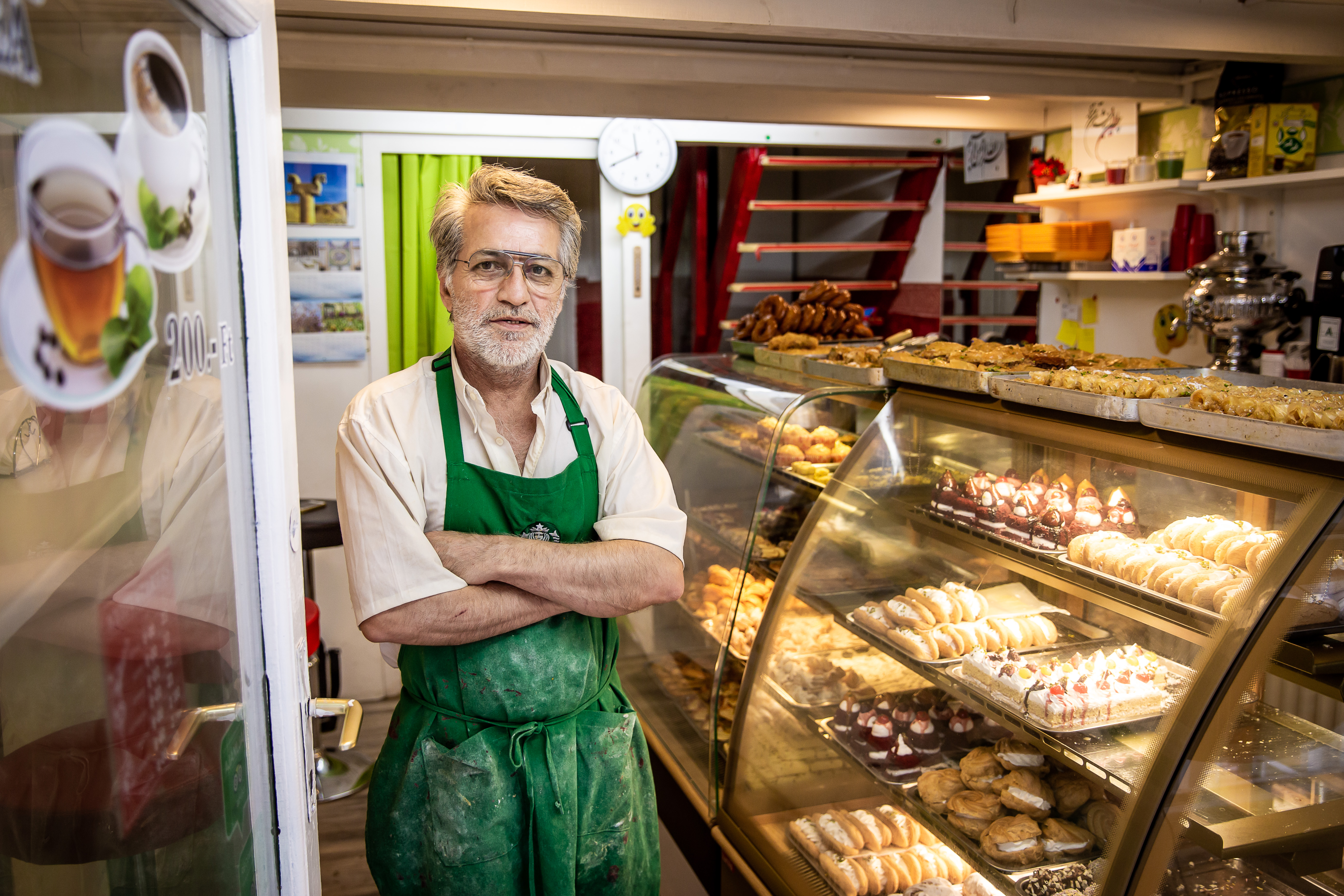Some 30 years ago, Mr Fereydun was working in his family business in Iran, learning the craft of local pastry-making, a vocation he inherited from his father while shaping dough as a child. Following the political upheavals in his country and after 20 years working in Norway, Fereydun is now among those adept artisans who have exported their know-how of a traditional trade to the Hungarian capital.
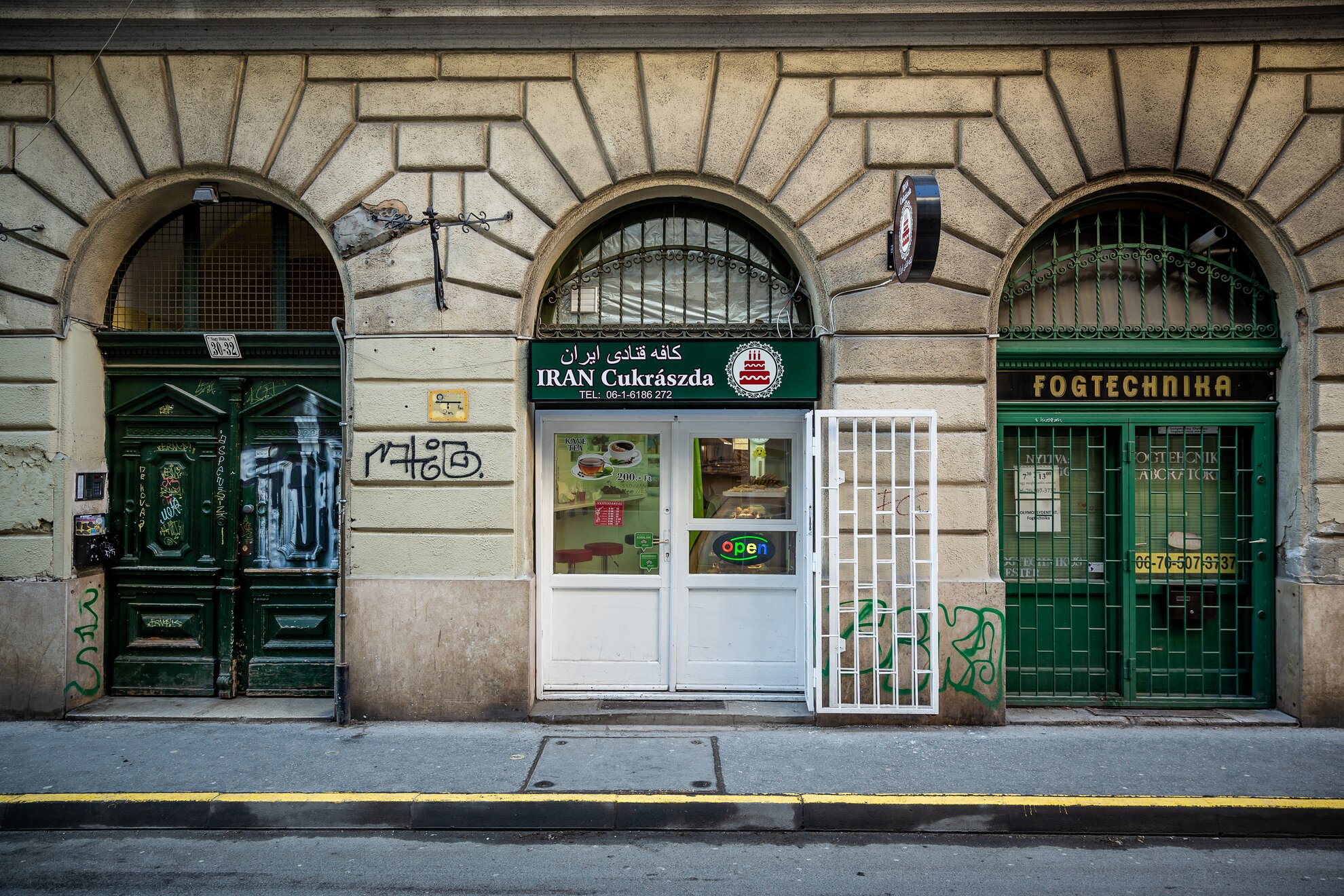
A slice of Tabriz is evoked within Fereydun’s unpretentious Budapest outlet, a place adorned with inexpensive prints of Iranian landmarks as opposed to fashionable wallpaper or trendy tiles. However, what takes central stage within the tiny shop is an old-school glass counter, filled to the brim with all things sweet. Masterfully displayed in an orderly mess, these towers of cakes often puzzle customers who are not familiar with Iranian confectionery.
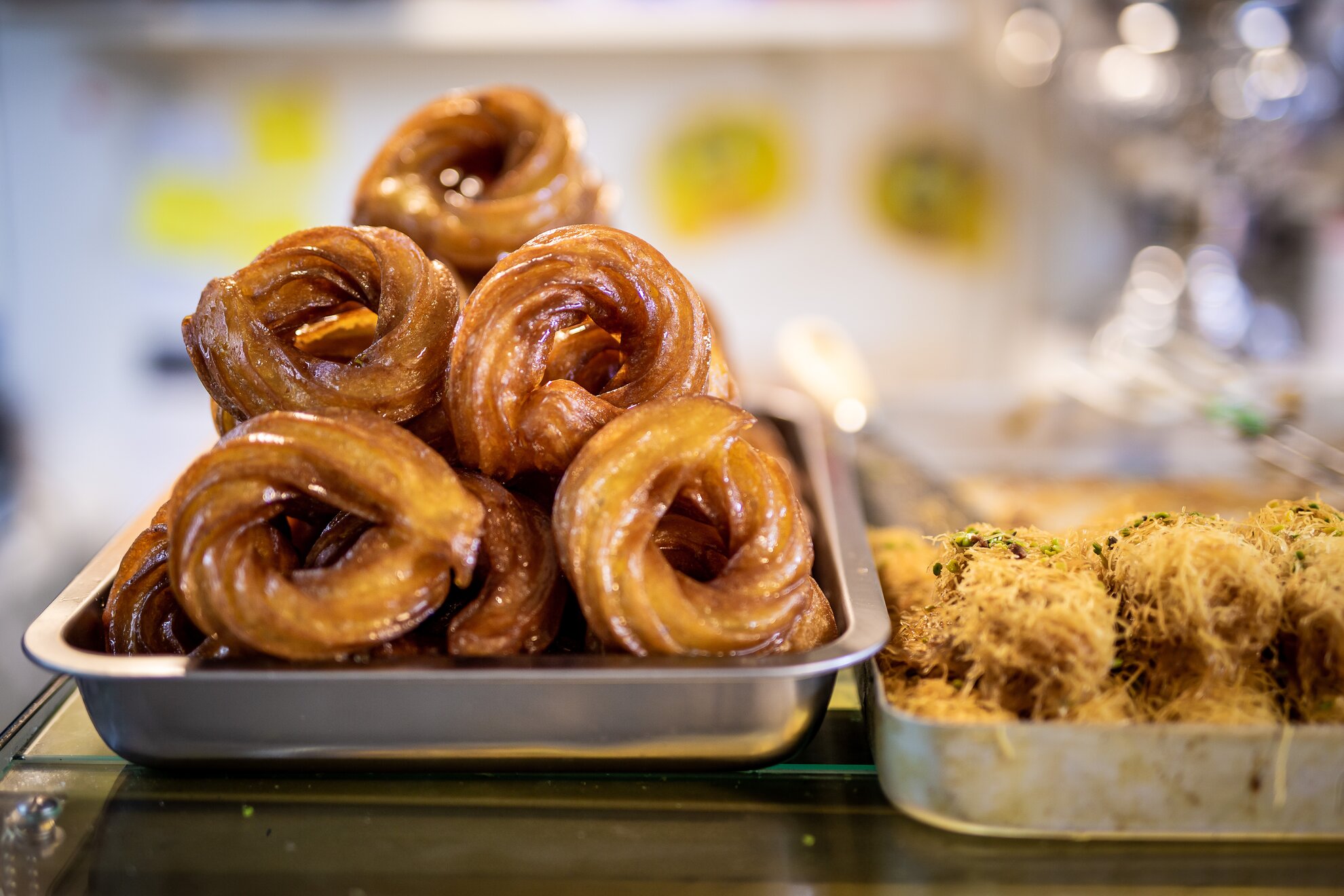
Persian cream cookie latifeh resembles the French éclair, while shirini nargili is a kind of meringue-based coconut cake. Golden-brown bamieh is made with yoghurt, eggs, saffron and as much sugar as you can possibly tolerate.
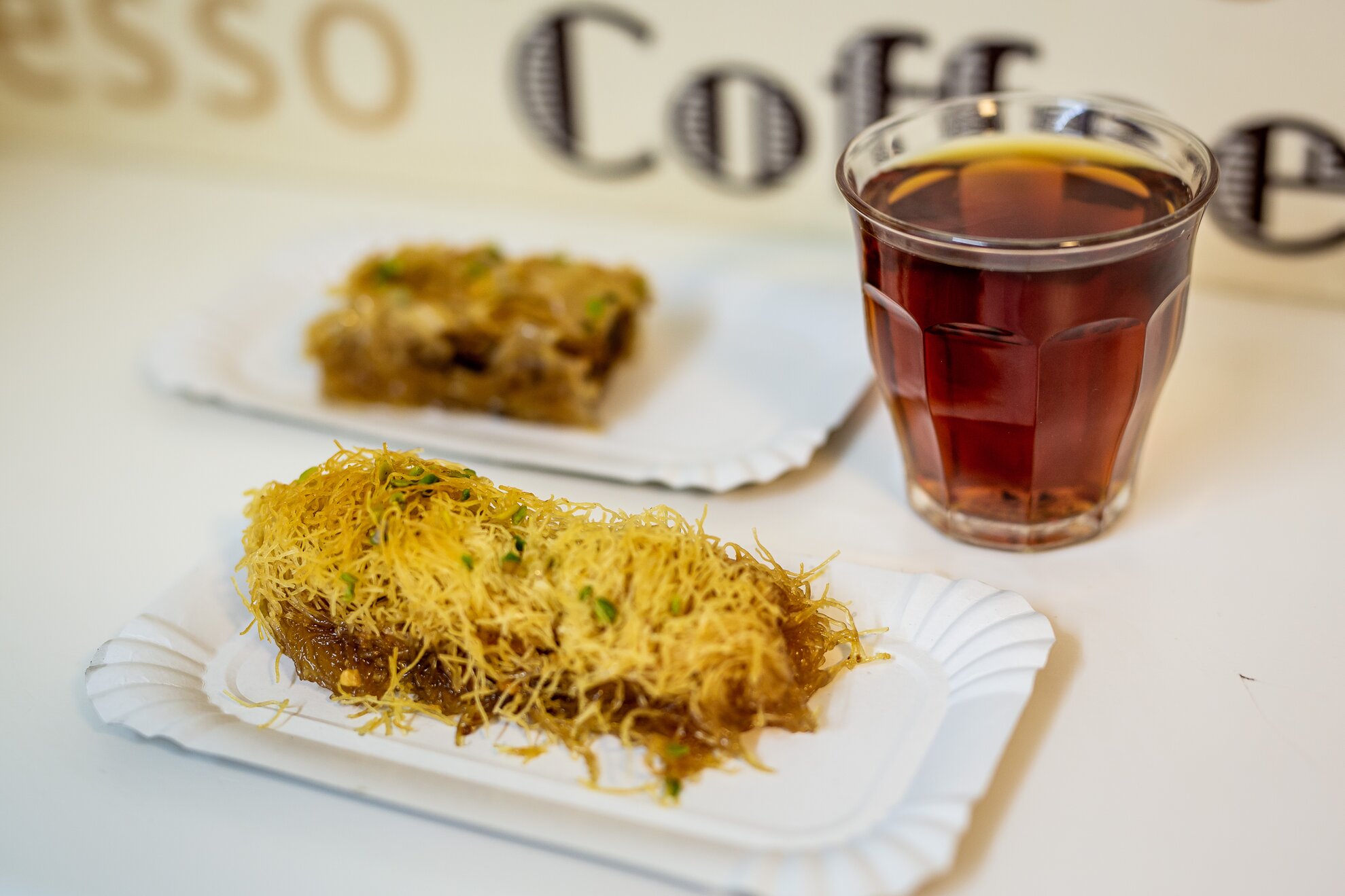
“Iranians eat a lot of sweet, too much sweet,” says Fereydun, who also explains that having a cake after lunch is an indispensable part of his nation’s cuisine. Added to the assortment is a variety of baklava, all made with fine-quality Iranian pistachio – the confectioner is quick to stress that key ingredients like saffron and nuts are mostly procured from Iran.
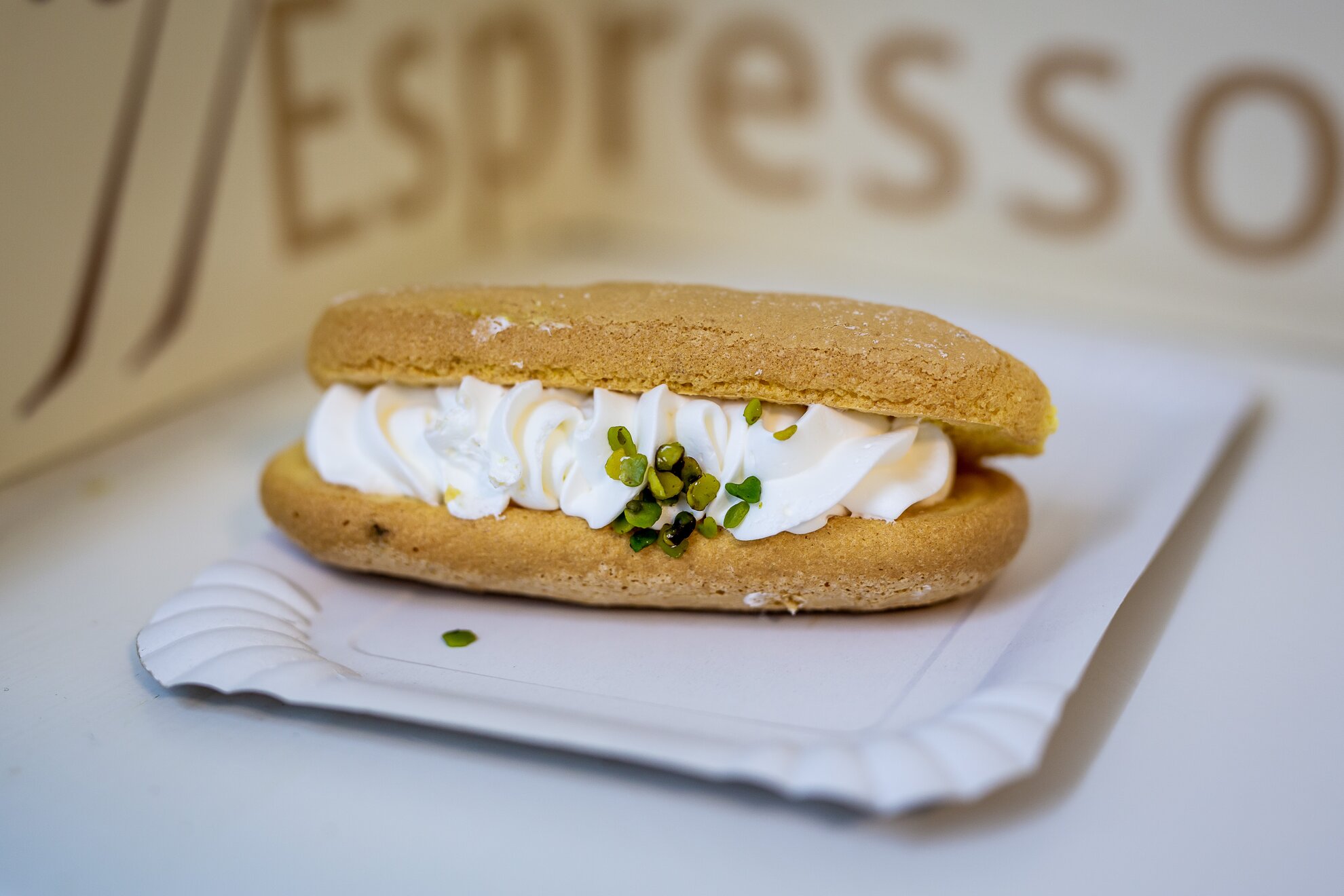
It’s now two years since Fereydun relocated to Hungary, where newly established friendships helped him find local foodstuffs to replace certain ingredients with an alternative of a higher standard. He adds, “For its good quality, I use Hungarian honey”.
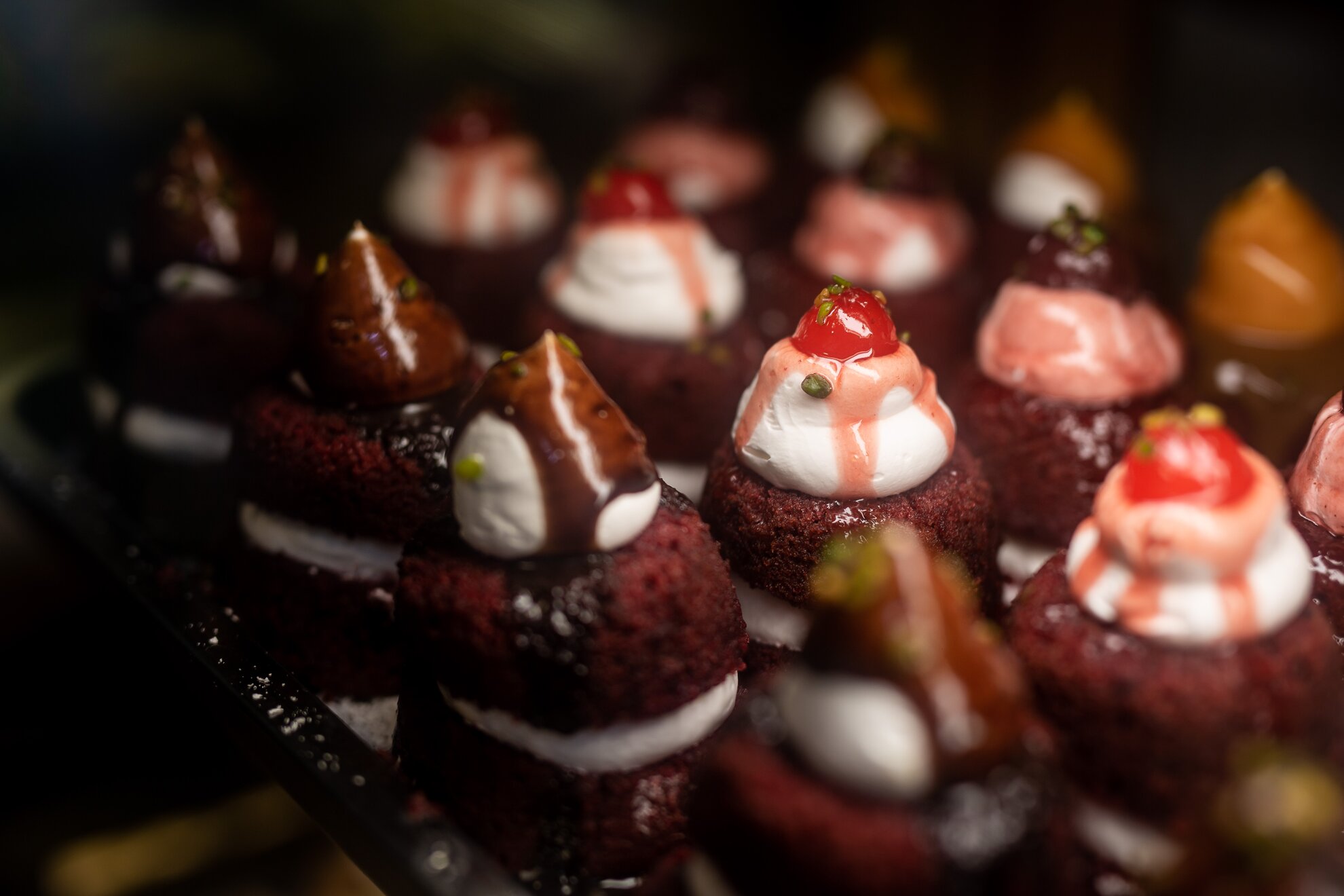
“It’s only Iranian cakes I have here,” Fereydun points out, when something resembling a Hungarian cream puff comes to the fore. He also claims that he prepares all the sweets and pastries in the adjacent kitchen found at the back of the shop behind a curtain.
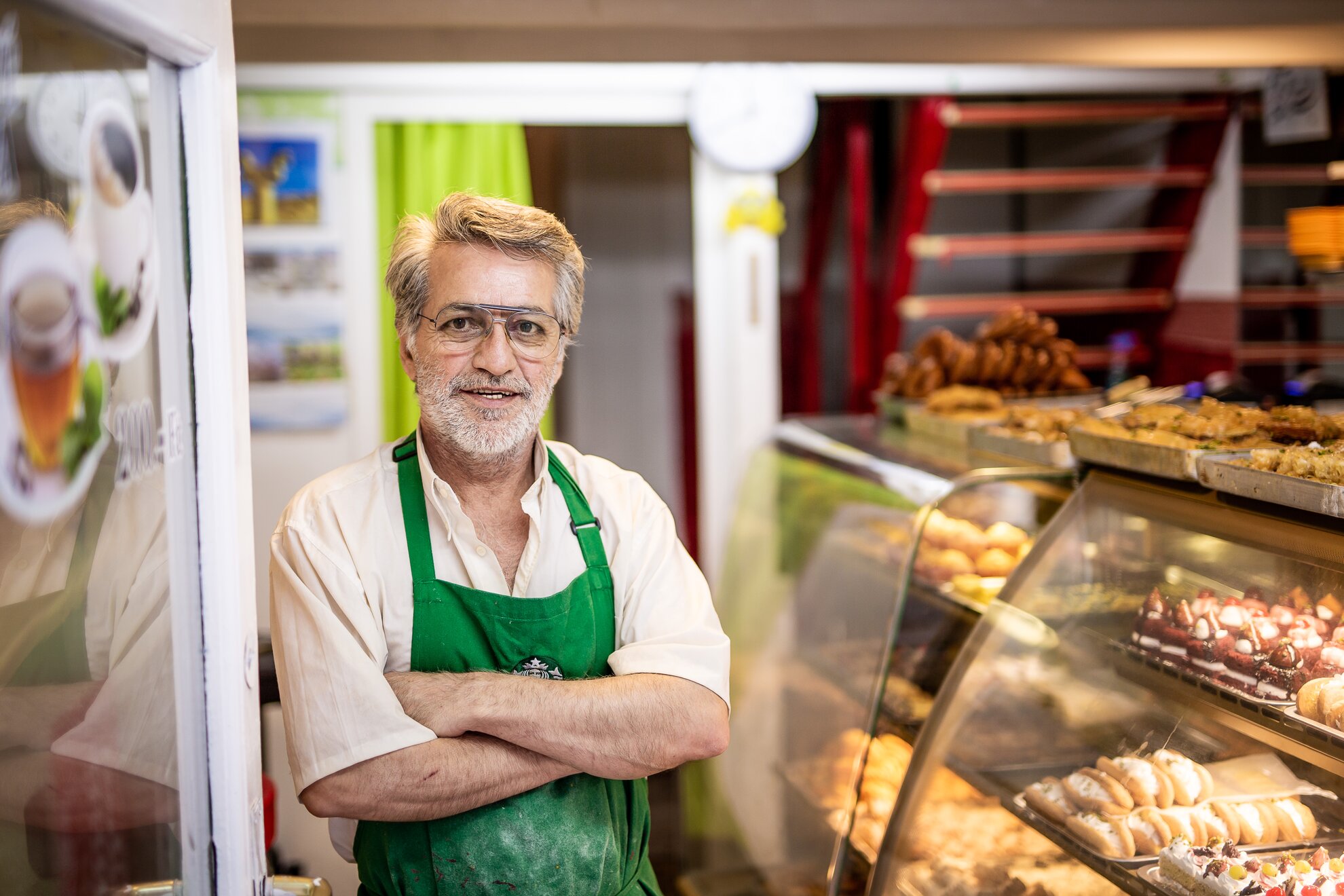
This one-man show is a true labour of love, where Fereydun is the sole person in charge of the entire operation from kneading to baking to serving. “I’m open all day, every day,” he says, no regret in his voice as he serves from a silver samovar two cups of strong Iranian black tea, a drink that usually crowns sweet times in Iran.
